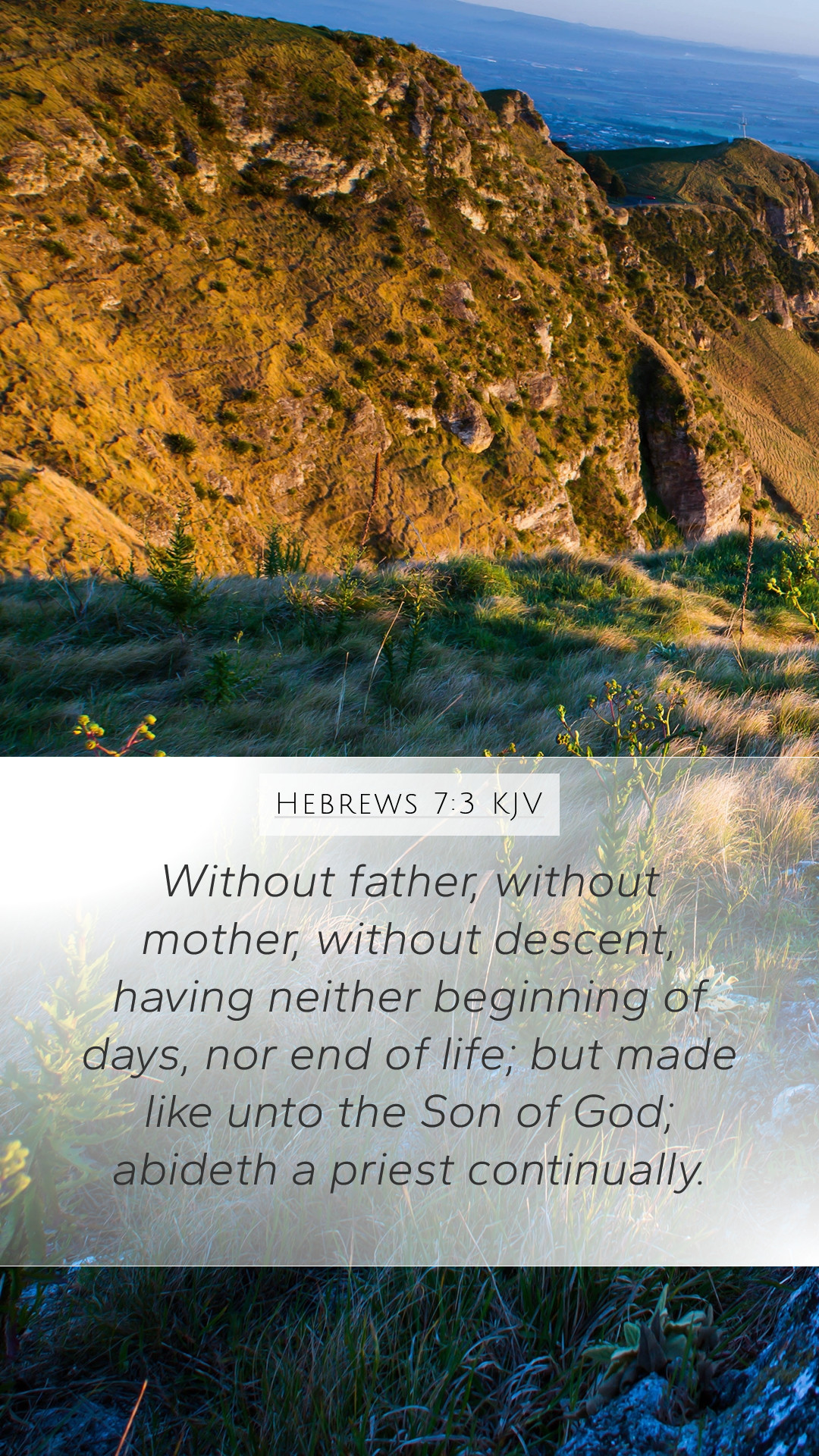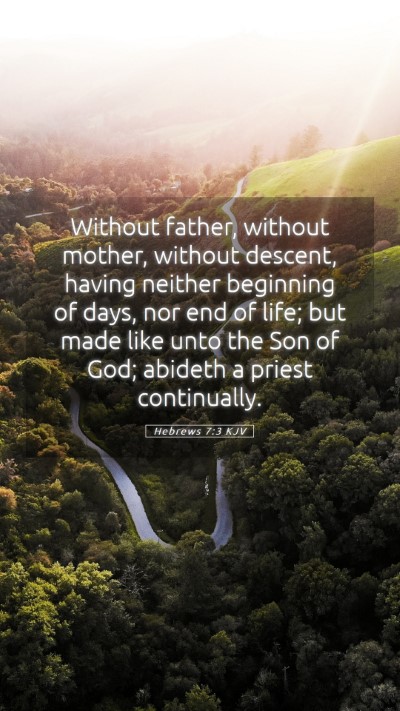Understanding Hebrews 7:3
Hebrews 7:3 is a significant verse that highlights the mysterious figure of Melchizedek, emphasizing his unique priesthood and the implications for the New Covenant established by Jesus Christ. This verse states:
“Without father, without mother, without descent, having neither beginning of days, nor end of life; but made like unto the Son of God; abideth a priest continually.”
The analysis of this verse is enriched by various public domain commentaries, which provide valuable insights into its meaning and application.
Summary of Key Insights
Below are interpretations from Matthew Henry, Albert Barnes, and Adam Clarke providing a comprehensive understanding of this scripture.
1. Matthew Henry's Commentary
-
Mystery of Melchizedek: Matthew Henry suggests that Melchizedek is presented as a type of Christ, illustrating a priesthood that is divine and eternal.
-
Timelessness: The statement of Melchizedek being “without father, without mother” symbolizes the eternal nature of his priestly office, paralleling Christ's eternal priesthood.
2. Albert Barnes' Commentary
-
Symbolism: Barnes elaborates that the absence of genealogical record for Melchizedek signifies a priesthood that does not depend on earthly lineage.
-
Continuity of Priesthood: He emphasizes that Melchizedek’s priesthood is seen as continuous, echoing Jesus’s role as our eternal High Priest.
3. Adam Clarke's Commentary
-
Historical Context: Adam Clarke provides historical context, suggesting that Melchizedek’s role in Genesis foreshadowed the coming of Christ, anchoring the Christian faith in its origins.
-
Divine Appointment: He notes the distinct appointment of Melchizedek, underscoring that it was divinely ordained rather than through the Levitical line.
Bible Verse Explanations
The exploration of Hebrews 7:3 leads to a deeper understanding of biblical themes such as priesthood, identity, and the lasting covenant.
Implications for Biblical Exegesis
The verse allows for a rich scripture analysis that indicates the transition from the Old Covenant, represented by the Levitical priesthood, to the New Covenant established through Jesus, the ultimate High Priest. This transition is essential for understanding the entirety of the book of Hebrews.
Applications of Hebrews 7:3
Understanding this verse provides a foundation for Bible study insights and aids in applying Bible verses to daily life. Believers can reflect on the eternal nature of Christ’s intercession and how it assures their relationship with God.
Cross References
- Genesis 14:18-20 - The first mention of Melchizedek
- Psalms 110:4 - The prophetic declaration of Jesus as a priest forever
- Hebrews 5:6 - Further elaboration on Christ’s priesthood in the order of Melchizedek
- Hebrews 7:17 - Direct linkage of Jesus to Melchizedek's eternal priesthood
Conclusion
Hebrews 7:3 encapsulates profound truths about the nature of Christ’s priesthood, serving as a key to understanding the New Testament’s portrayal of Jesus. Through thoughtful study and commentary, believers can derive meaning of Bible verses that resonate deeply within the faith. This in-depth study allows Christians to engage with Scripture on a profound level, enhancing their understanding and application of biblical truths in their lives.


